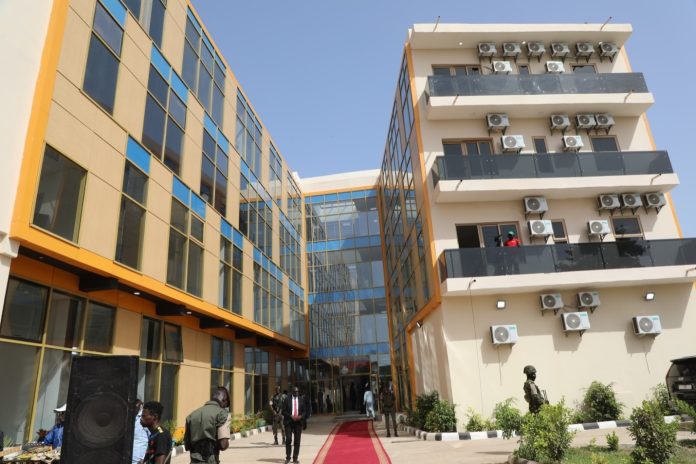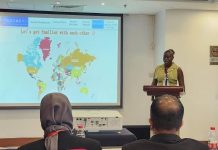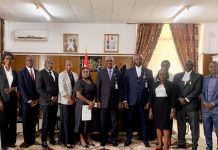By Assan Bah
The Ministry of Environment, Climate Change and Natural Resources (MECCNAR) has officially opened its new office complex in Abuko, a sprawling 5,378-square-meter facility designed to centralize operations and improve coordination among the ministry’s departments.
The inauguration, held on Wednesday, was attended by senior government officials, development partners, and President Adama Barrow, who praised the project as a testament to his administration’s commitment to self-reliance and climate-conscious development.
The new complex features 93 offices, 59 toilets, one major conference hall, and four additional meeting rooms. The project, which experienced delays due to the termination of the initial contractor, was revived by GAMWORKS in early 2024 through a new tendering process that awarded the remaining works to GIGO Construction. GAMWORKS Director General Omar Gaye disclosed that the first contractor had completed 70 percent of the work before being relieved of duty, with D77 million already spent. GIGO Construction was later contracted to finish the project for D61.1 million, completing the work in April 2025.
Minister of Environment Rohey John Manjang highlighted the significance of the move, noting that up to ten departments under MECCNAR had previously operated from rented spaces scattered across the Greater Banjul Area. “We have to graduate from renting as government,” she said, citing inefficiencies and communication gaps caused by the lack of centralized operations.
In his keynote address, President Barrow emphasized that the project was fully funded through domestic resources and implemented by local companies, reflecting his administration’s goal of building national capacity and strengthening the local economy.
“We are here to reaffirm our vision of a modern, confident, and environmentally conscious Gambia,” President Barrow said. “This complex is more than a building—it is a symbol of our resilience, our self-reliance, and our unwavering commitment to sustainable development.”
Barrow linked the project to his broader Yiriwa development agenda, which prioritizes climate-smart infrastructure and nationwide resilience in the face of environmental challenges.




















